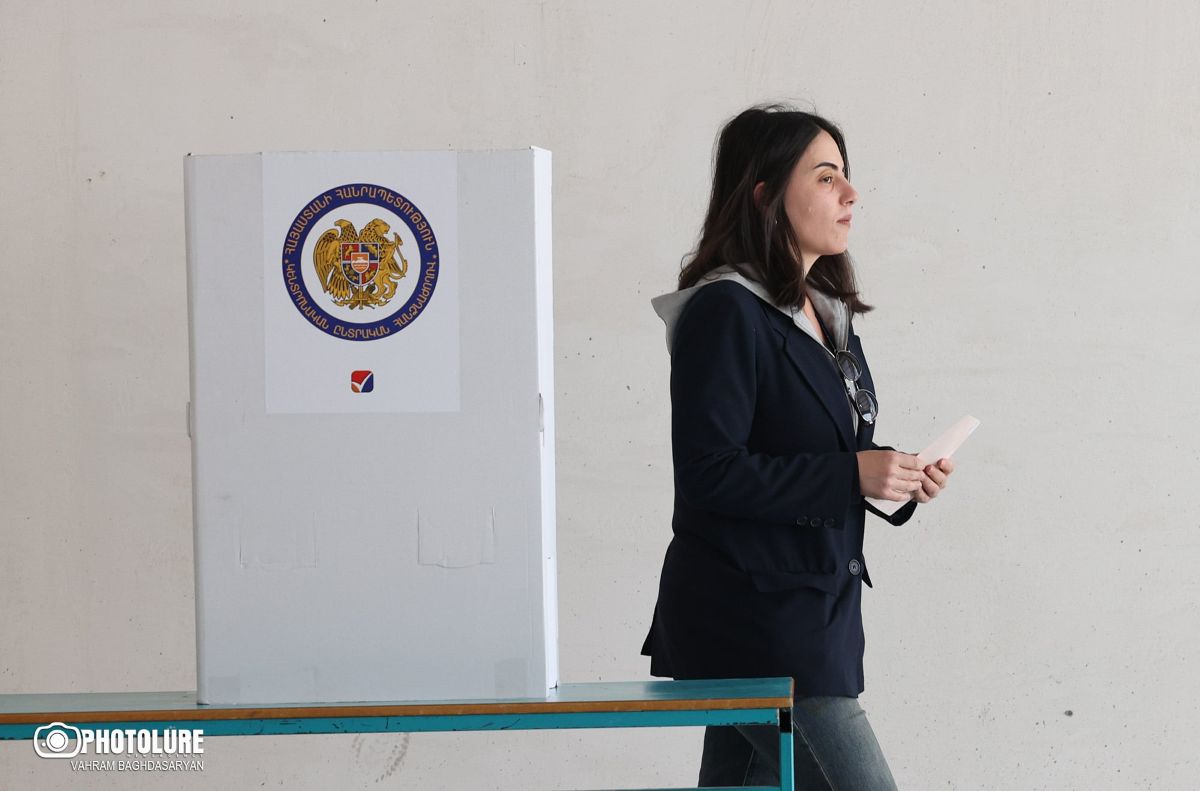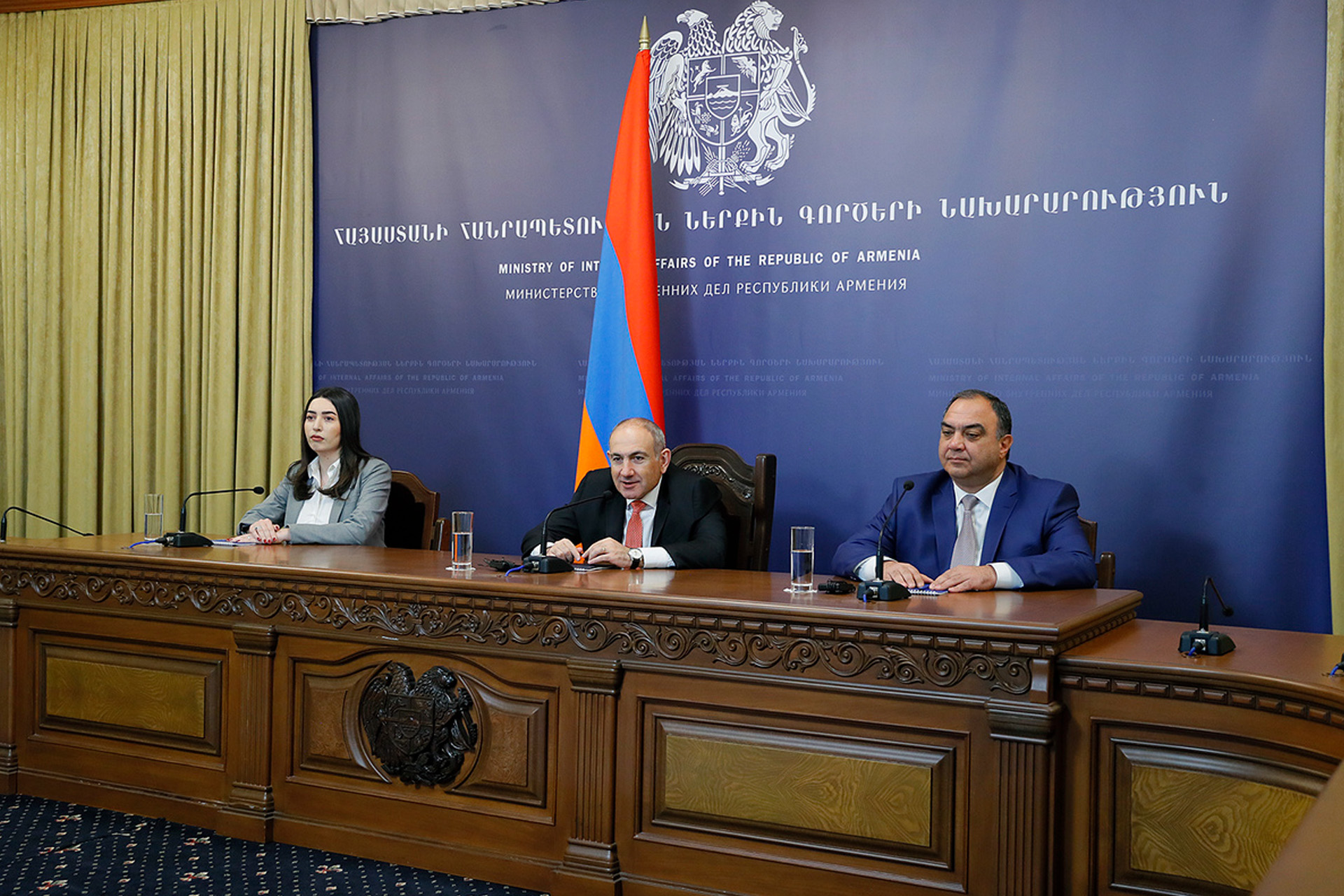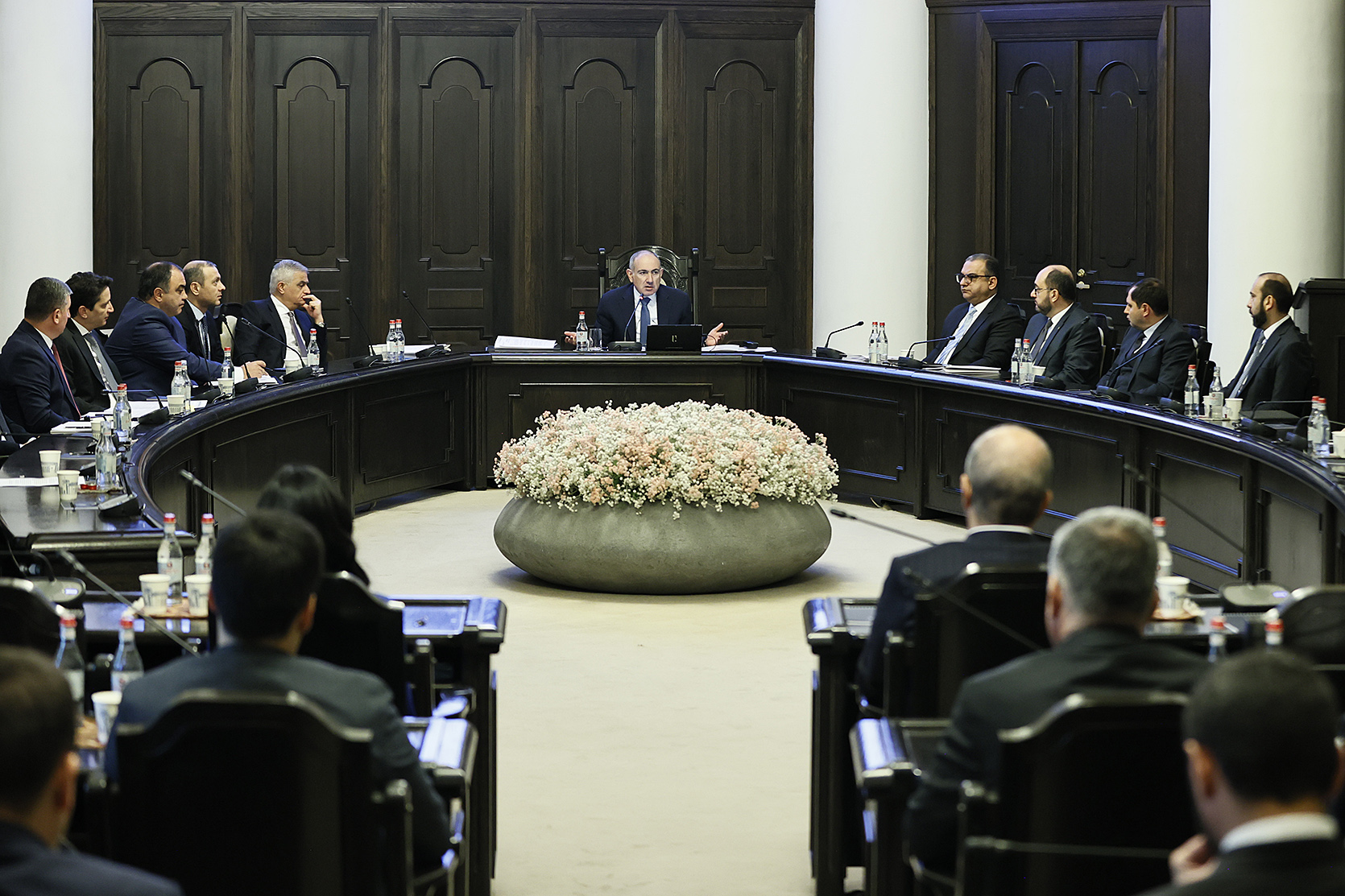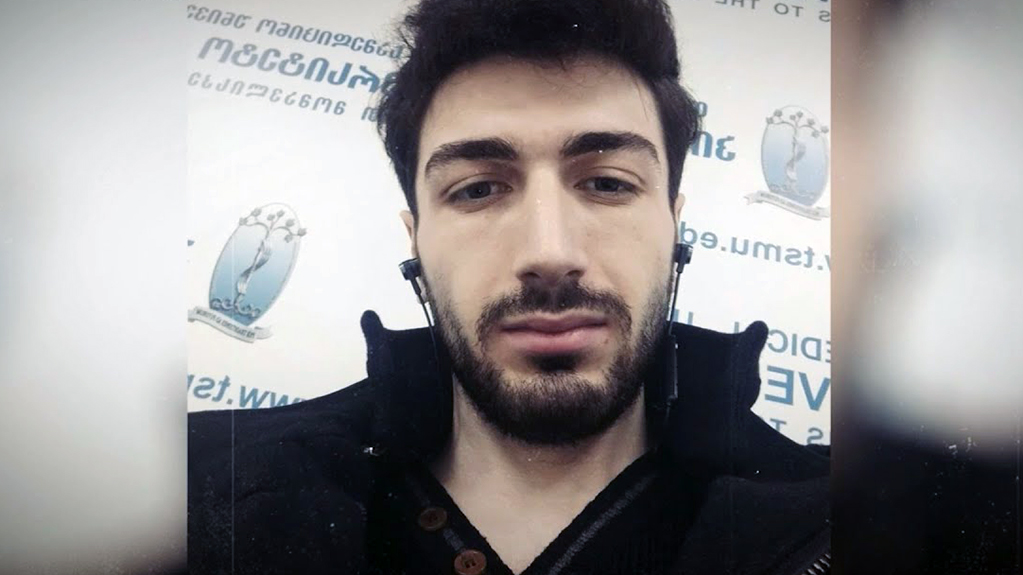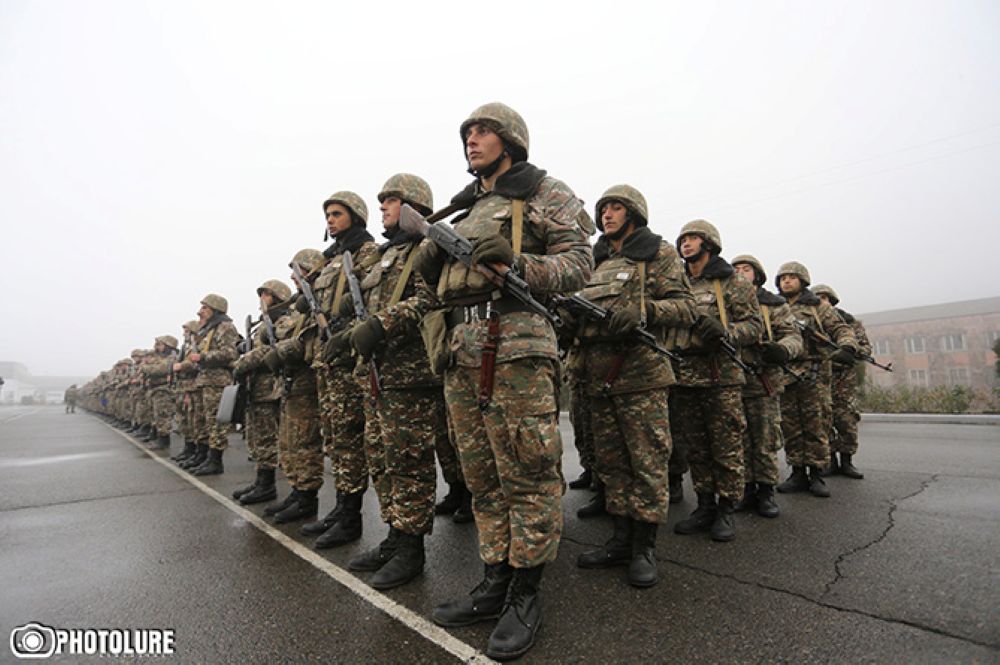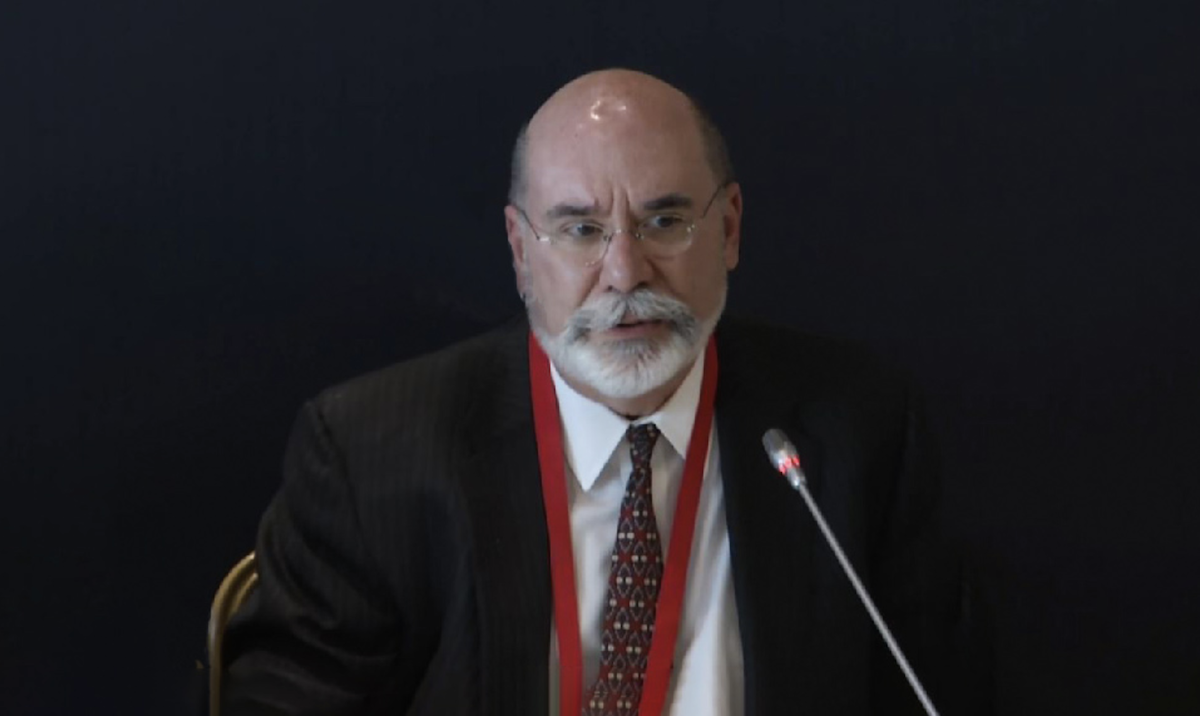'Gyumri — foothold of counterrevolution': opposition candidate elected mayor of Armenia’s second-largest city
Vardan Ghukasyan becomes mayor of Gyumri
Today, the newly elected Council of Elders convened its first session in Gyumri, Armenia’s second-largest city, following the recent municipal elections. Communist Party candidate Vardan Ghukasyan was elected mayor, receiving votes from all 18 council members present. Representatives of the ruling Civil Contract party boycotted the meeting, demanding repeat snap elections.
Ghukasyan, who previously led the city for 13 years, will officially assume office on 19 April. Though widely seen as an ally of former President Robert Kocharyan, Ghukasyan insisted today that his only political backing is “the people.”
Political analyst Ruben Mehrabyan noted that Kocharyan once made a similar claim, calling it a “smokescreen” and describing both men as “graduates of the same school of political deceit.” According to Mehrabyan, the political forces that gained power in Gyumri ruled during Armenia’s “criminal dictatorship” and ruined the city. He believes their return is not driven by a desire to fix local issues but rather by revenge:
“These people have returned with a sense of vengeance, seeking revenge and counterrevolution. They will use Gyumri as a launchpad for that purpose,” he stressed.
The snap municipal elections were held on 30 March. No party secured over 50% of the vote. While the ruling Civil Contract party received the most votes, none of the opposition groups agreed to form a coalition with it. Three of the four opposition forces that passed the electoral threshold supported Ghukasyan.
- Show of discipline? Armenian MP expelled from ruling party
- Demand for Pashinyan’s resignation – live at midnight on Armenia’s Public TV
- “In Armenia, it is possible to freely express your opinions without fear”: USAID study
“New elections needed”: ruling party candidate
Following the elections, Armenia’s ruling Civil Contract party announced its intention to nominate its representative, Sarik Minasyan, for mayor at the first session of the Council of Elders. However, party members boycotted the session, and Minasyan had already announced on social media that they would not attend.
In his view, Gyumri is headed for failure under the current circumstances, and political crisis is inevitable:
“Gyumri must not become a city with an uncertain, murky future. This is not in the interests of its residents. For the sake of Gyumri and its people, we must hold new snap elections.”
“I oppose Pashinyan and his political views” — Ghukasyan
Responding to journalists’ questions about alleged ties to former president Robert Kocharyan, Gyumri’s newly elected mayor Vardan Ghukasyan said:
“At the moment, I have no political ties to anyone. That might change in the future. Never say never.”
Ghukasyan reiterated his opposition to Prime Minister Nikol Pashinyan, his political views, and his actions — though he promised to “maintain subordination” in his work.
When asked about the possibility of snap elections, he replied:
“Let it be as God wills. Elections should not be held with money, repression, or outside interference. Let them organise real, transparent, proper elections.”
New mayor of Gyumri supports Armenia joining union state with Russia
When asked by journalists whether he would support Armenia joining a union state, Vardan Ghukasyan replied:
“I support a union state modelled after Belarus. The condition must be the preservation of the Republic of Armenia’s independence. This isn’t about falling at someone’s feet.”
The new mayor of Gyumri said Armenia needs a country it can rely on — and for him, that country is Russia:
“Businessmen will come from Russia. We need to solve the problems of our hospital, and launch joint factories and enterprises. You’ll see it all happen.”
In his view, pro-European parties can use the same approach with Europe — and “bring benefits to the city of Gyumri and Armenia.”
Expert opinion
According to political analyst Ruben Mehrabyan, the election of Vardan Ghukasyan as mayor was entirely predictable, as opposition forces that passed the electoral threshold had already openly declared their support for him:
“This is the result of the half-hearted reforms carried out by the ruling Civil Contract party. These half-measures have eroded public trust in reforms and in democracy. The outcome of the Gyumri elections is a worrying signal. But there’s still time to learn from it.”
Mehrabyan believes the ruling party will now position itself as a radical opposition force in Gyumri.
This, he says, explains Civil Contract’s Sarik Minasyan claiming the new city government is doomed to fail — and why he expects open political confrontation ahead. He also does not rule out that the government may move to terminate Ghukasyan’s mayoral powers early:
“Because of the disgraceful failure to reform the law enforcement, judiciary, and investigative bodies, none of this is being properly addressed. I think we’ll soon hear news on these issues. If we don’t, it means we’re letting the state collapse — and that’s simply unacceptable.”
According to Armenia’s law on local self-governance, the government can terminate a mayor’s powers early in certain cases — including a conviction and sentencing to prison.
Vardan Ghukasyan is already facing criminal proceedings, accused of “coercion to participate in a rally and offering material compensation for participation or non-participation in a gathering.”
Parliament Speaker Alen Simonyan has repeatedly said that “Ghukasyan belongs in prison.” Nonetheless, the new mayor stated today that he is taking on the role while under investigation because he “loves his homeland and is a fighter for justice.” On the possibility of facing legal consequences, he added: “They can do whatever they want to me.”
Mehrabyan believes Gyumri has now lost the opportunity to have a leadership genuinely focused on solving the city’s problems:
“This will continue for some time — how long is unclear. The state must prove its capability and follow through with reforms. It must take action and start calling things by their name,” he said, referring to the punishment of corrupt officials and former regime figures involved in financial crimes.
He concluded that the true challenge lies in the intentions of those who have taken power in Gyumri — to use the city as a springboard for regime change, counterrevolution, and the return of a criminal, corrupt system to Armenia.










